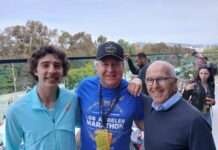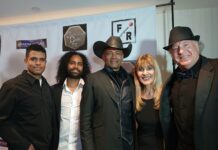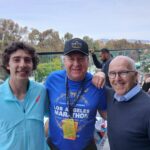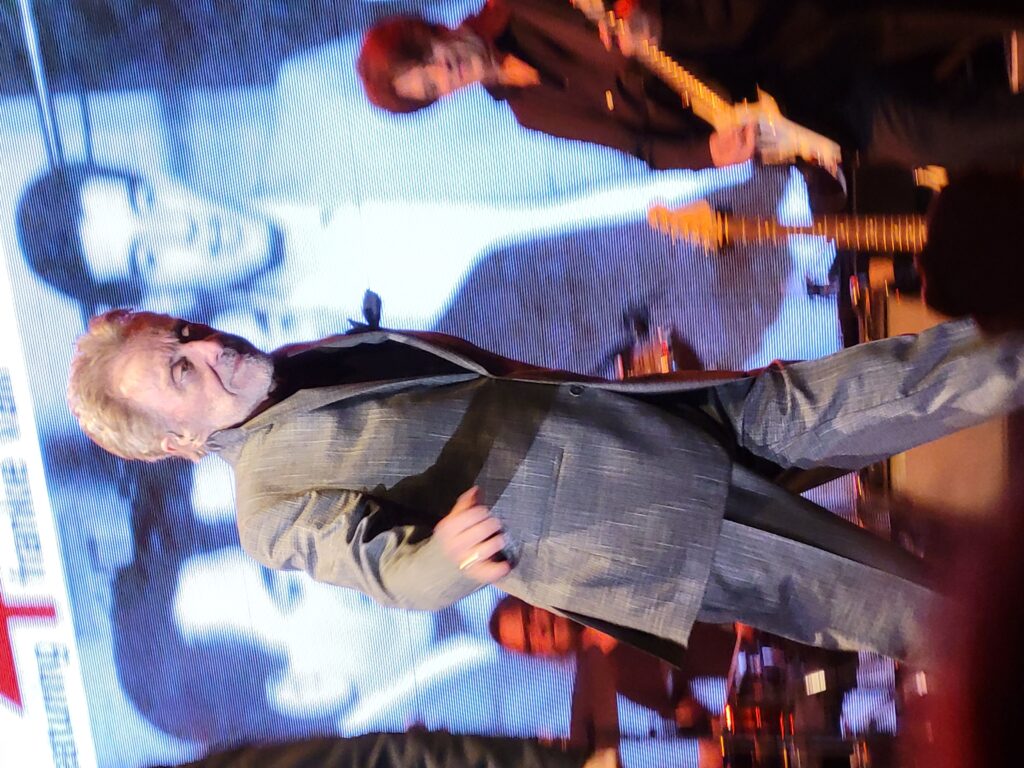
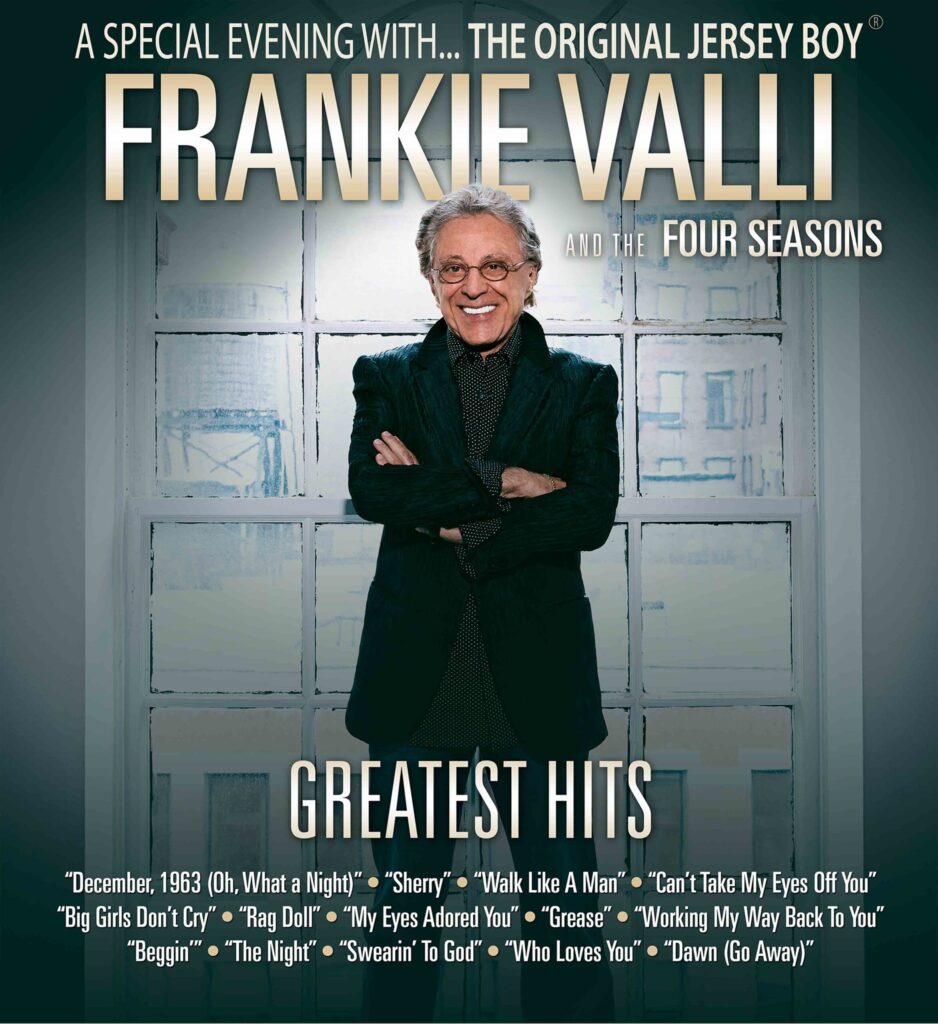
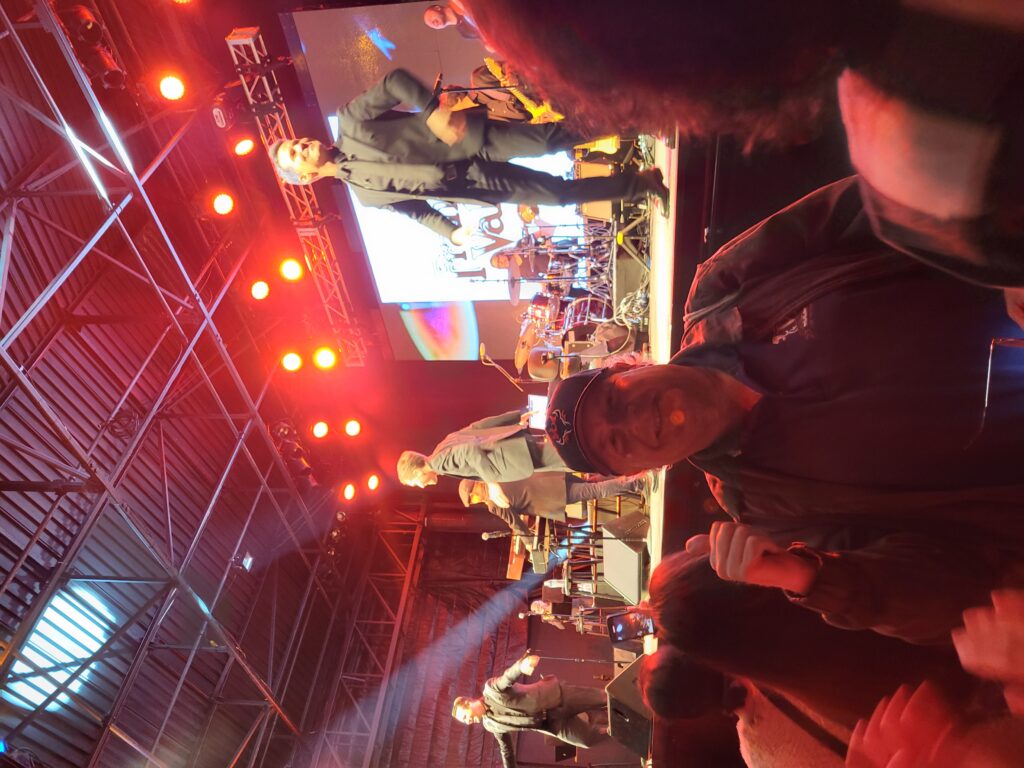

Francesco Stephen Castelluccio (born May 3, 1934), better known by his stage name Frankie Valli, is an American singer, known as the front man of the Four Seasons beginning in 1960. He is known for his unusually powerful lead falsetto voice.Valli scored 29 top 40 hits with the Four Seasons, one top 40 hit under the Four Seasons alias the Wonder Who?, and nine top 40 hits as a solo artist. As a member of the Four Seasons, Valli’s number-one hits include “Sherry” (1962), “Big Girls Don’t Cry” (1962), “Walk Like a Man” (1963), “Rag Doll” (1964) and “December, 1963 (Oh, What a Night)” (1975). Valli’s recording of the song “Can’t Take My Eyes Off You” reached number two in 1967. As a solo artist, Valli scored number-one hits with the songs “My Eyes Adored You” (1974) and “Grease” (1978).
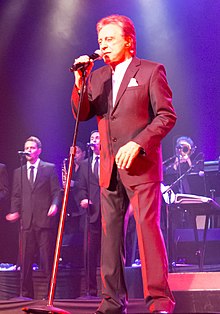
Oh, what a story. Frankie Valli, who came to fame in 1962 as the lead singer of the Four Seasons, is hotter than ever in the 21st century. Thanks to the volcanic success of the Tony-winning musical Jersey Boys, which chronicles the life and times of Frankie and his legendary group, such classic songs as “Big Girls Don’t Cry,” “Walk Like a Man,” “Rag Doll,” and “Can’t Take My Eyes Off You” are all the rage all over again. As the play enters its third sold-out year on Broadway, and two touring companies of Jersey Boys travel around the U.S., the real Frankie Valli is packing concert halls coast to coast, from the Rose Theater, home of Jazz at Lincoln Center in New York City, to L.A.’s Kodak Theater, home of the Academy Awards.
During the rehearsals Frankie was so kind as to autograph a photo of himself with Josef, from when they had meet at The Oscar’s Night of 100 Stars, at the Beverly Hills Hotel: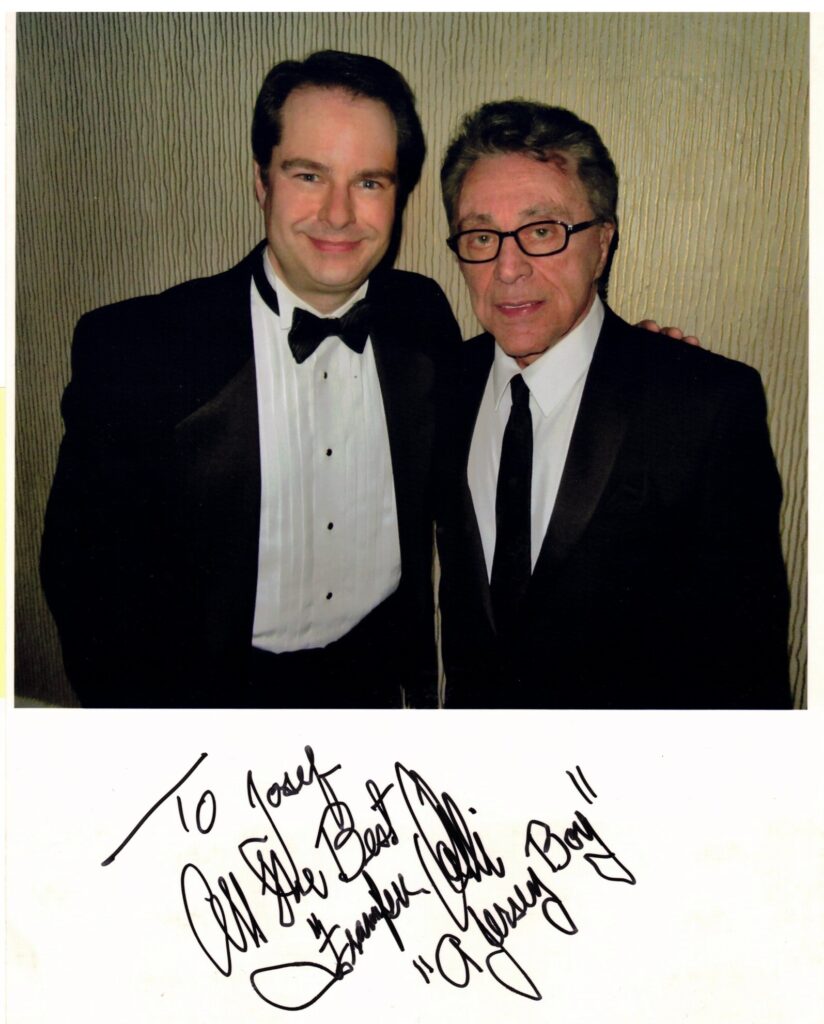
Now Frankie salutes the decade that made him a star with his first new studio album in 15 years. In Romancing The ’60s, that is sold now at his concerts, he puts his own stamp on some of his favorite ’60s songs, the ones he always wanted to record but somehow got away. Produced by Bob Gaudio, an original member of the Four Seasons and Frankie’s long-time partner, the set includes unforgettable new versions of such gems as “Spanish Harlem,” “Call Me” and “Take Good Care of My Baby.” And the album features a delightful guest appearance by the four young stars of Jersey Boys, providing background vocals for—what else?—“On Broadway.” Launched with perfect timing amid Jersey Boy-mania, Romancing The ’60s is the most eagerly anticipated album of Frankie Valli’s 54-year recording career.
But please don’t say that Frankie is back. The truth is, he never went away. Sure, the majority of the 71 chart hits of Frankie Valli and the Four Seasons (including 40 in the Top 40, 19 in the Top 10 and eight No. 1’s) came during the 1960s, but the music didn’t just disappear. He has toured almost continuously since 1962, and his songs have been omnipresent in such movies as The Deer Hunter, Dirty Dancing, Mrs. Doubtfire, Conspiracy Theory and The Wanderers. As many as 200 artists have done cover versions of Frankie’s “Can’t Take My Eyes Off You,” from Nancy Wilson’s jazz treatment to Lauryn Hill’s hip-hop makeover.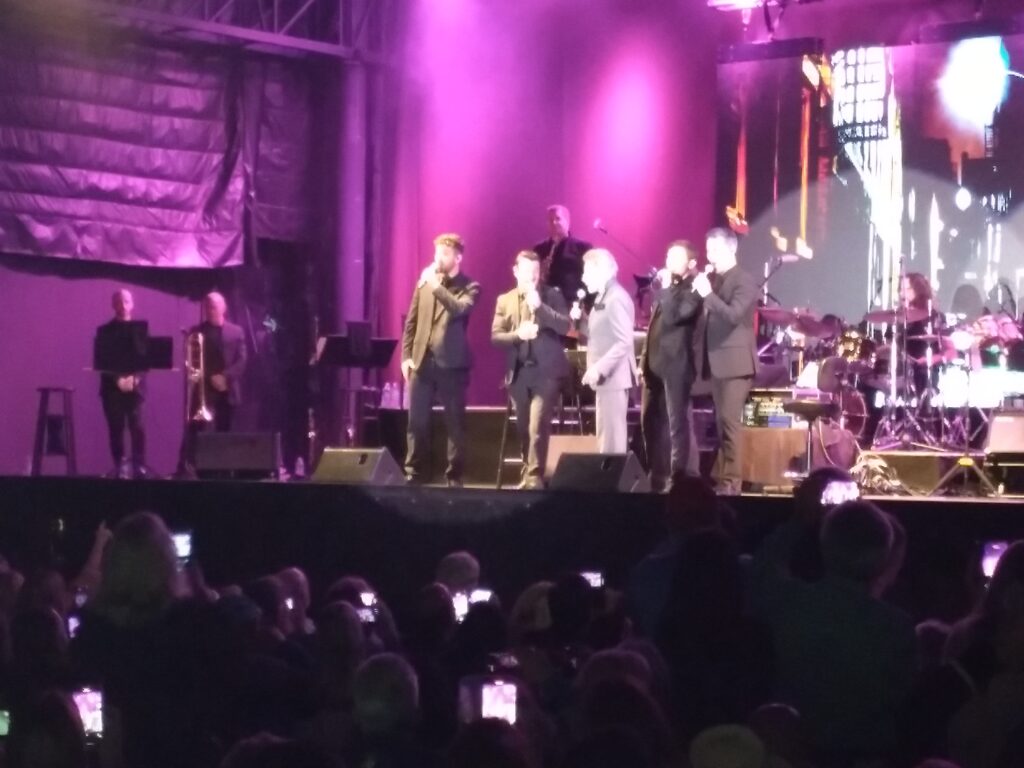 Frankie and the Seasons have influenced many other great recording artists. That was acknowledged in dozens of recent tributes collected for Jersey Beat, the newly released Four Seasons boxed set. For example, from Barry Gibb: “Frankie Valli to me has become one of the hallmark voices of our generation. From the deepest emotions of his real voice to the power of his falsetto, he created a style that we all still strive to emulate.” From Billy Joel: “I wrote ‘Uptown Girl’ as the flip side to the story of ‘Rag Doll.’ I always loved that record.” And from Brian Wilson: “In the early ’60s the Four Seasons were my favorite group. I thought they were fantastic. The voice blend was fantastic. The competition helped me to get cracking. It inspired me, because they made good music. I went to the piano thinking I could top their music.”
Frankie and the Seasons have influenced many other great recording artists. That was acknowledged in dozens of recent tributes collected for Jersey Beat, the newly released Four Seasons boxed set. For example, from Barry Gibb: “Frankie Valli to me has become one of the hallmark voices of our generation. From the deepest emotions of his real voice to the power of his falsetto, he created a style that we all still strive to emulate.” From Billy Joel: “I wrote ‘Uptown Girl’ as the flip side to the story of ‘Rag Doll.’ I always loved that record.” And from Brian Wilson: “In the early ’60s the Four Seasons were my favorite group. I thought they were fantastic. The voice blend was fantastic. The competition helped me to get cracking. It inspired me, because they made good music. I went to the piano thinking I could top their music.” 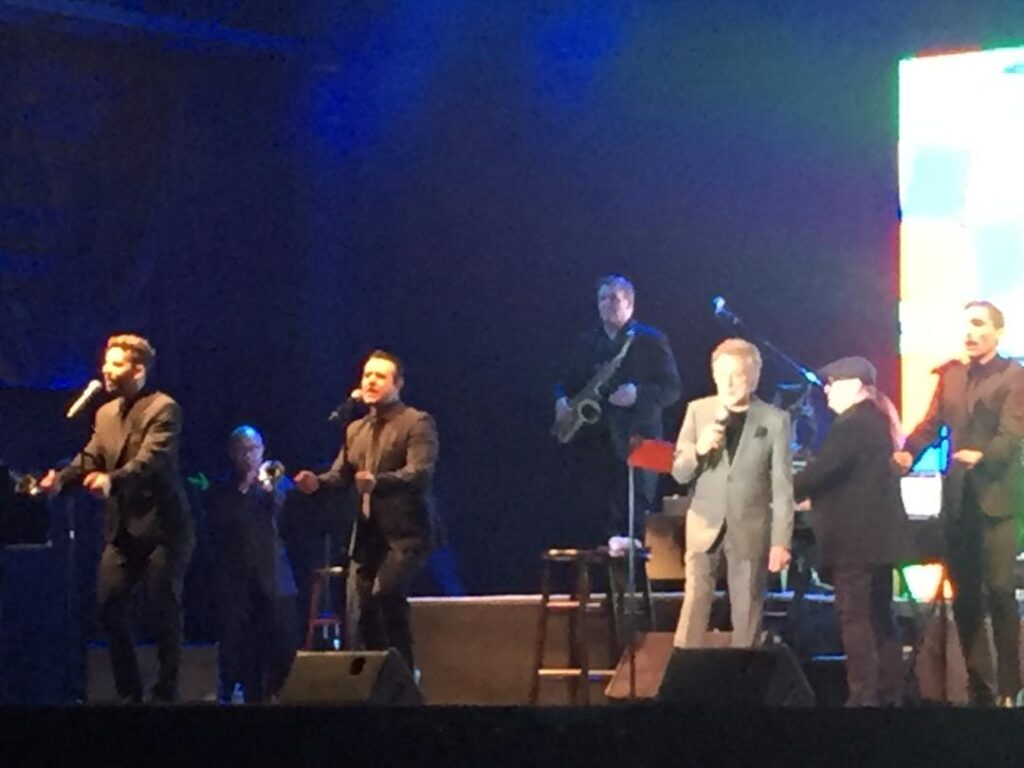
There’s something about Frankie’s music that makes young people of every generation want to get up and dance. Amid the disco era, the Seasons hit it big with “Who Loves You,” which reached No 3 in 1975, and “December 1963 (Oh, What a Night), a No. 1 record in 1976. On the other side of the Atlantic, “You’re Ready Now” and “The Night,” which didn’t do anything in the U.S., emerged from dance clubs in the north of England to become huge hits in Europe. Two decades later, in 1994, a dance club remix of “December 1963” climbed to No. 14 in the U.S. on the Billboard Hot 100. In 2000, a French-language rap version of “December 1963” went to No. 1 in Paris. And last July—yes, July of 2007—a remix of the Four Seasons’ 1967 hit “Beggin’ ” became the No. 1 dance record in Britain. This was eight months in advance of the scheduled March 2008 opening of Jersey Boys in London. Case closed: Frankie never went away.
Anyone who forgot about Frankie apparently never watched one of the most popular and critically acclaimed TV series in history: The Sopranos. The Seasons’ music could be heard in the show or sometimes over the credits. The characters often spouted their admiration for “Frankie Valli.” Tony Soprano bragged that he used the same florist as Frankie. And Frankie himself, in an acting role, guest-starred in Seasons 5 and 6 of The Sopranos as mobster Rusty Millio—until Rusty’s unfortunate demise in a hail of bullets.
Considering Frankie’s background, it’s a wonder he didn’t end up like Rusty rather than in the Rock and Roll Hall of Fame. Born Francis Castelluccio on May 3, 1934, he grew up in a public housing project—Stephen Crane Village—on the tough streets of Newark, New Jersey. As the character of Tommy DeVito, Frankie’s friend and fellow Four Season, says in Jersey Boys: “If you’re from my neighborhood, you got three ways out: You could join the army. You could get mobbed up. Or—you could become a star.” At an early age, Frankie chose Door No. 3. When he was seven, his mother took him to New York City’s Paramount Theater to see Frank Sinatra. “I saw Sinatra coming out on stage,” Frankie recalls, “and the way he was lit up, it was like he had an aura around him. I decided then and there that’s what I was going to do—be a successful singer.”
That’s not easy in the best of circumstances, and hanging out in Newark was certainly not the best of circumstances. Several of Frankie’s friends did stints in jail for small-time robberies, including two buddies, Tommy DeVito and Nick Massi, who would later become original members of the Four Seasons. If you didn’t watch out, Frankie says, “you could wind up in the trunk of a car.”
Fortunately, Frankie’s friends discovered that making music was a good way to stay out of jail and car trunks. In the early ’50s, DeVito headed a group called the Variety Trio, and one night he invited young Frankie on stage to sing “I Can’t Give You Anything But Love.” Soon, Frankie was known around the neighborhood for having the voice of an angel. In 1953, he caught the eye of music publisher Paul Kapp, who helped Frankie make his first record, “My Mother’s Eyes,” on the Corona label. Realizing that Castelluccio was “a little long for a marquee” (as his girlfriend kids him in Jersey Boys), he rechristened himself Frankie Valley (later Italianized to Valli), borrowing the name from friend and fellow performer Texas Jean Valley. “My Mother’s Eyes” made a little splash locally but sank without a trace outside Newark.
A bit of national attention didn’t come until 1956, when Frankie was in a group called the Four Lovers with Tommy, his brother Nick DeVito and Hank Majewski. They had a minor hit with “You’re the Apple of My Eye” by Otis Blackwell, who also penned “Don’t Be Cruel” for Elvis Presley. The Four Lovers also cut an album called Joyride and appeared on the Ed Sullivan Show. But even this modest success proved to be short-lived, and Frankie kept open his other main career path—cutting hair.
It wasn’t until 1959 that the Lovers, now numbering three (Frankie, Tommy and Nick Massi) started catching some big breaks. First, a friend named Joe Pesci (yes, the same Joe Pesci who would go on, improbably, to become an Oscar-winning actor) introduced the Lovers to Bob Gaudio, a piano-playing, song-writing prodigy and former member of the Royal Teens. He had co-written the monster hit “Short Shorts,” but then his Teens had returned to obscurity. After taking in Gaudio, the Lovers, now Four again, started working with Bob Crewe, a brilliant lyricist and producer with a golden ear (his songwriting credits already included “Silhouettes” for the Rays). Meanwhile, the Lovers flunked an audition to play at the cocktail lounge of a bowling alley in Union, N.J., but they decided the lounge’s name would make a classy moniker for a singing group: The Four Seasons.
For two years the Four Seasons sang background for Crewe’s other acts while working on a style of their own. Finally, in 1962, Gaudio came up with a song that made full use of Frankie’s remarkable range, from baritone to falsetto. When the unknown Seasons sang “Sherry” on American Bandstand, they suddenly became the hottest band in the land, and after nine years as a recording artist, Frankie Valli became an “overnight” sensation with a No. 1 record. The sound of “Sherry” was unlike anything else on the airwaves. “Many R&B groups had used falsetto as part of their background harmonies,” explains Frankie, “but we were different because we put the falsetto out front and made it the lead.”
Determined not to be a one-hit wonder again, Gaudio collaborated with Crewe, and the duo quickly composed two more No 1 hits for the Seasons: “Big Girls Don’t Cry” and “Walk Like a Man.” Gaudio and Crewe went on to become one of the most successful song-writing teams in pop-music history. Around the same time, Gaudio also formed a special partnership with Valli. With a handshake, Bob agreed to give Frankie half of everything Bob earned as a writer and producer, and Frankie agreed to give Bob half of Frankie’s earnings from performances outside the group. That partnership remains in force 45 years later, still sealed only with a handshake.
The fateful year of 1964 brought the British invasion, but that didn’t stall the Four Seasons. With the Gaudio-Crewe engine firing on all cylinders, the group released one smash after another: “Dawn (Go Away),” “Ronnie,” “Rag Doll,” “Save It For Me,” “Big Man in Town” and, in early 1965, “Bye Bye Baby (Baby, Goodbye).”
From late 1965 to 1967, Gaudio and Crewe began working on songs that Frankie could sing solo—adult-oriented songs that didn’t rely on his famous falsetto. Songwriting for the group was largely turned over to the team of Denny Randell and Sandy Linzer, who produced three straight giant hits: “Let’s Hang On,” “Working My Way Back to You” and “Opus 17 (Don’t You Worry ’Bout Me).” The Seasons also cracked the Top 10 with a gorgeous reinvention of the old Cole Porter standard “I’ve Got You Under My Skin.” Gaudio’s main contribution to the group during this period was “Beggin’,” written with Peggy Farina of the Angels.
Back in the studio, Gaudio and Crewe were still puzzling over songs that could give Frankie his own identity. After several unsuccessful attempts, they finally fashioned a signature song that would make Frankie a solo superstar: “Can’t Take My Eyes Off You.” Released in 1967, it went to No. 2 in Billboard and No. 1 in Cashbox. With the popularity of the original record and all the cover versions, “Can’t Take My Eyes Off You” has become one of the top ten most-played songs in the history of BMI, one of the two major companies that collect royalties for songwriters.
After “Can’t Take My Eyes Off You” came two more Top 40 solo hits: “I Make a Fool of Myself” and “To Give (the Reason I Live).” But unlike many lead singers who achieve solo success, leave their groups and never look back, Frankie stayed with the Four Seasons, producing hits in two parallel careers. While Frankie flourished solo, the Four Seasons stayed in the Top 40 with “C’mon Marianne,” “Watch the Flowers Grow” and a remake of “Will You Love Me Tomorrow.”
In the early 1970’s the Seasons finally had a cold spell. Massi and DeVito had left the group, and the lineup of players kept changing. But while Gaudio stopped touring with the group, he continued to write songs, and Frankie Valli remained one of the biggest names in the music business.
In 1975 Frankie came roaring back with “My Eyes Adored You,” which reached No. 1, “Swearin’ to God” and a cover of “Our Day Will Come.” That burst of success spurred Gaudio to put together a new Four Seasons, led by Frankie of course. With his future wife Judy Parker, Gaudio wrote “Who Loves You” and “December 1963 (Oh, What a Night),” two of the biggest hits in the Seasons’ history. The new hot streak culminated in 1978, when Frankie’s solo performance of “Grease,” featured not once but twice in the movie soundtrack, reached the inevitable No. 1 ranking in Billboard.
From 1962 to 1978, Frankie Valli and the Four Seasons sold more than 100 million records, even before the invention of the compact disc prompted Seasons collectors to buy the hits all over again. For decades after their heyday, Frankie and the Seasons continued to be a top concert draw, and radio constantly played their classics, not to mention the new remixes that kept popping up on the charts.
But who could imagine that the first 45 years would be only the beginning—that Frankie Valli would celebrate 2007 with a new album and a heavy sold-out concert schedule? No other pop star has ever received the kind of new lease on life that Jersey Boys has given Frankie Valli. In addition to the three current productions of Jersey Boys, plans have been laid to take the play to London, Las Vegas and Toronto for open-ended runs. And producers are clamoring to bring the musical to Australia, Singapore, China and even Dubai—yes, the Dubai that’s part of the United Arab Emirates. Every major Hollywood studio has asked about making a Jersey Boys movie.
For as far into the future as anyone can see, Jersey Boys will introduce the music of Frankie Valli to new generations. Romancing The ’60s is a most welcome and long-awaited addition to that legacy. The man himself shows no signs of slowing down. As his character says at the end of Jersey Boys: “Like that bunny on TV with the battery, I just keep going and going and going.” For as long as he wants to sing, people will want to listen.


